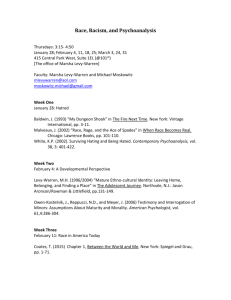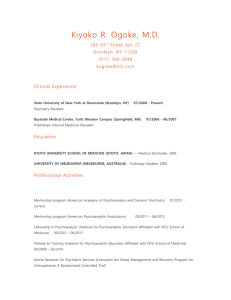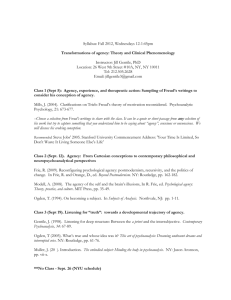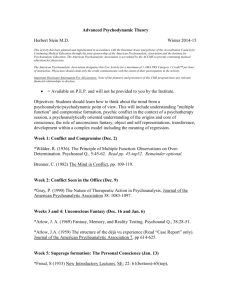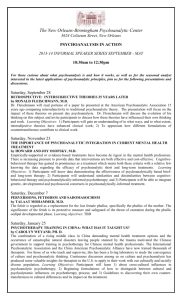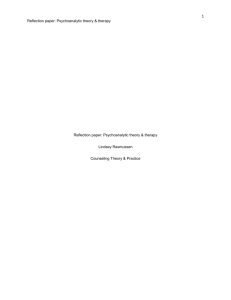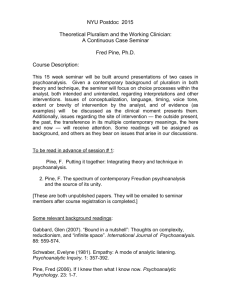MPhil FAQ 2015-2016
advertisement
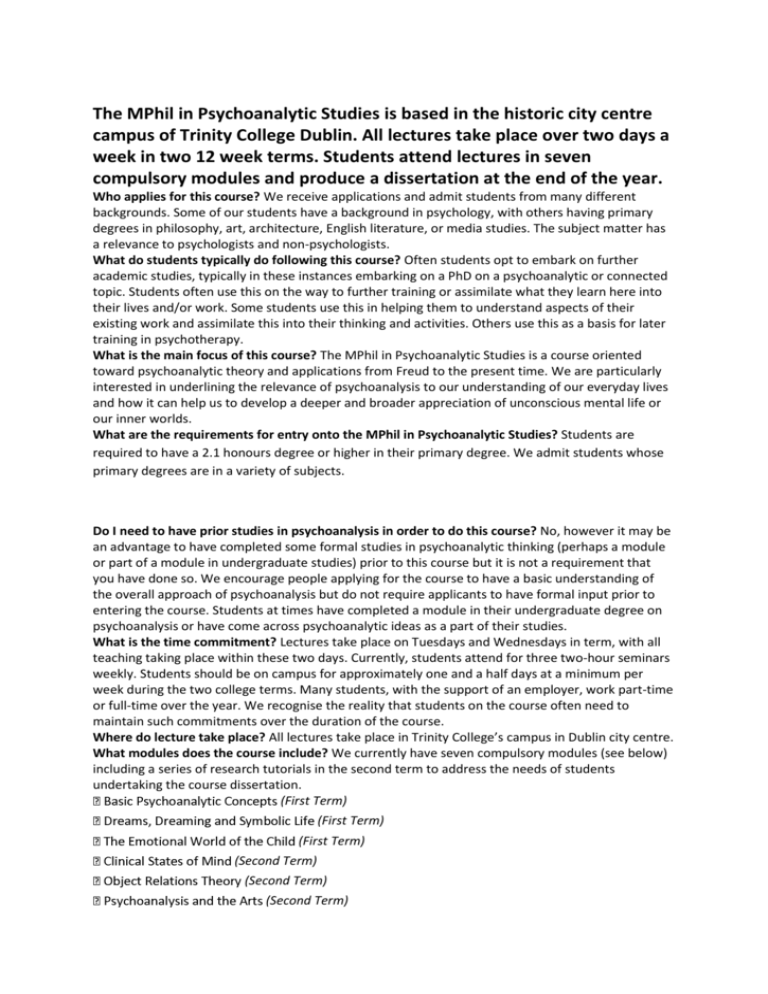
The MPhil in Psychoanalytic Studies is based in the historic city centre campus of Trinity College Dublin. All lectures take place over two days a week in two 12 week terms. Students attend lectures in seven compulsory modules and produce a dissertation at the end of the year. Who applies for this course? We receive applications and admit students from many different backgrounds. Some of our students have a background in psychology, with others having primary degrees in philosophy, art, architecture, English literature, or media studies. The subject matter has a relevance to psychologists and non-psychologists. What do students typically do following this course? Often students opt to embark on further academic studies, typically in these instances embarking on a PhD on a psychoanalytic or connected topic. Students often use this on the way to further training or assimilate what they learn here into their lives and/or work. Some students use this in helping them to understand aspects of their existing work and assimilate this into their thinking and activities. Others use this as a basis for later training in psychotherapy. What is the main focus of this course? The MPhil in Psychoanalytic Studies is a course oriented toward psychoanalytic theory and applications from Freud to the present time. We are particularly interested in underlining the relevance of psychoanalysis to our understanding of our everyday lives and how it can help us to develop a deeper and broader appreciation of unconscious mental life or our inner worlds. What are the requirements for entry onto the MPhil in Psychoanalytic Studies? Students are required to have a 2.1 honours degree or higher in their primary degree. We admit students whose primary degrees are in a variety of subjects. Do I need to have prior studies in psychoanalysis in order to do this course? No, however it may be an advantage to have completed some formal studies in psychoanalytic thinking (perhaps a module or part of a module in undergraduate studies) prior to this course but it is not a requirement that you have done so. We encourage people applying for the course to have a basic understanding of the overall approach of psychoanalysis but do not require applicants to have formal input prior to entering the course. Students at times have completed a module in their undergraduate degree on psychoanalysis or have come across psychoanalytic ideas as a part of their studies. What is the time commitment? Lectures take place on Tuesdays and Wednesdays in term, with all teaching taking place within these two days. Currently, students attend for three two-hour seminars weekly. Students should be on campus for approximately one and a half days at a minimum per week during the two college terms. Many students, with the support of an employer, work part-time or full-time over the year. We recognise the reality that students on the course often need to maintain such commitments over the duration of the course. Where do lecture take place? All lectures take place in Trinity College’s campus in Dublin city centre. What modules does the course include? We currently have seven compulsory modules (see below) including a series of research tutorials in the second term to address the needs of students undertaking the course dissertation. (First Term) (First Term) (First Term) (Second Term) (Second Term) (Second Term) (First and Second Term, Summer following terms) Does each module carry equal credits? Each of the first six modules accounts for 10 credits, while the dissertation accounts for 30 credits. There are 90 credits in all. Are there exams? We do not have exams on this course. Each module has its own written assessment. Assessments take the form of essays, in-class written assessments and the dissertation. What are the fees for this course? The current fee level for the course is € 7,250 for EU applicants and €14,500 for non-EU applicants. What kind of dissertation do students on this course typically do? Students are encouraged to choose a topic that interests them personally and/or professionally. Students often choose a topic with which they are familiar or select a topic that may be of use to them in pursuing their career beyond the course. The dissertation is between 14,000 and 16,000 words in length. You will have a supervisor who will help you to select a topic and who will advise you in relation to the structuring and content of the dissertation. I have a disability that has a bearing on my completion of written work. Are accommodations made in the course to reflect this? TCD welcomes students who have disabilities and we do not discriminate on the basis of disability. The course operates in line with the College’s policies in this regards. In order to secure the accommodations that are required, it is important that you advise the College of your disability (though the College’s Disabilities Office). Could you recommend a book I might read in order to give me a better idea of the subject matter of this course? We generally recommend the following book as a good basic introduction to psychoanalytic theory: Bateman, A. & Holmes, J. (2002). Introduction to Psychoanalysis: Contemporary Theory and Practice. New York: Brunner-Routledge.
